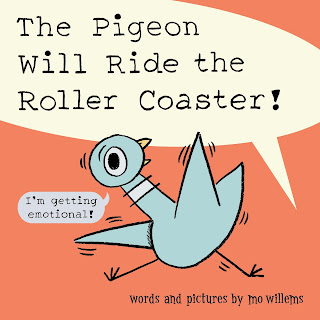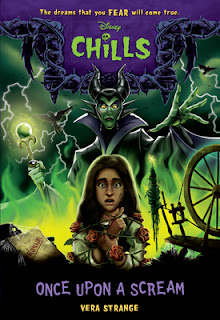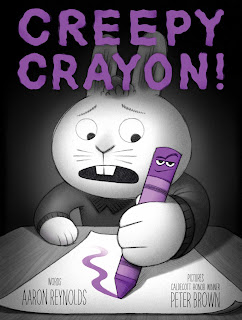It's Friday and time for Fast Five Fiction! Each week I share five fiction books: new books, notable books, books around a common theme. Hispanic Heritage Month started this week and we'll be celebrating at BPL with various displays and programs. In honor of Hispanic Heritage Month, today I'll be sharing a little bit about it's history and five middle grade books written by Latinx authors.
Beginning in 1968, Hispanic Heritage Month was originally observed as “Hispanic Heritage Week” under President Lyndon Johnson, but it was later extended to a month during President Ronald Reagan's term in 1988. It's now celebrated each year from September 15 - October 15th. It honors the cultures and contributions of both Hispanic and Latino Americans as we celebrate heritage rooted in all Latin American countries.
Click the title to be directed to the book in our catalog. Book descriptions are from Goodreads.

Marcus Vega Doesn't Speak Spanish by Pablo Cartaya
Marcus Vega is six feet tall, 180 pounds, and the owner of a premature mustache. When you look like this and you're only in the eighth grade, you're both a threat and a target. Marcus knows what classmates and teachers see when they look at him: a monster.
But appearances are deceiving. At home, Marcus is a devoted brother. And he finds ways to earn cash to contribute to his family’s rainy day fund. His mom works long hours and his dad walked out ten years ago—someone has to pick up the slack.
After a fight at school leaves him facing suspension, Marcus and his family decide to hit the reset button and regroup for a week in Puerto Rico. Marcus is more interested in finding his father, though, who is somewhere on the island. Through a series of misadventures that take Marcus all over Puerto Rico in search of the elusive Mr. Vega, Marcus meets a colorful cast of characters who show him the many faces of fatherhood. And he even learns a bit of Spanish along the way.
Marcus Vega Doesn’t Speak Spanish is a novel about discovering home and identity in uncharted landscapes.

Charlie Hernández has always been proud of his Latin American heritage. He loves the culture, the art, and especially the myths. Thanks to his abuela’s stories, Charlie possesses an almost encyclopedic knowledge of the monsters and ghouls who have spent the last five hundred years haunting the imaginations of children all across the Iberian Peninsula, as well as Central and South America. And even though his grandmother sometimes hinted that the tales might be more than mere myth, Charlie’s always been a pragmatist. Even barely out of diapers, he knew the stories were just make-believe—nothing more than intricately woven fables meant to keep little kids from misbehaving.
But when Charlie begins to experience freaky bodily manifestations—ones all too similar to those described by his grandma in his favorite legend—he is suddenly swept up in a world where the mythical beings he’s spent his entire life hearing about seem to be walking straight out of the pages of Hispanic folklore and into his life. And even stranger, they seem to know more about him than he knows about himself.
Soon, Charlie finds himself in the middle of an ancient battle between La Liga, a secret society of legendary mythological beings sworn to protect the Land of the Living, and La Mano Negra (a.k.a. the Black Hand), a cabal of evil spirits determined to rule mankind. With only the help of his lifelong crush, Violet Rey, and his grandmother’s stories to guide him, Charlie must navigate a world where monsters and brujas rule and things he couldn’t possibly imagine go bump in the night. That is, if he has any hope of discovering what’s happening to him and saving his missing parents (oh, and maybe even the world).
Strange Birds: A Field Guide to Ruffling Feathers by Celia C. Perez
The story of four kids who form an alternative Scout troop that shakes up their sleepy Florida town.
When three very different girls find a mysterious invitation to a lavish mansion, the promise of adventure and mischief is too intriguing to pass up.
Ofelia Castillo (a budding journalist), Aster Douglas (a bookish foodie), and Cat Garcia (a rule-abiding birdwatcher) meet the kid behind the invite, Lane DiSanti, and it isn't love at first sight. But they soon bond over a shared mission to get the Floras, their local Scouts, to ditch an outdated tradition. In their quest for justice, independence, and an unforgettable summer, the girls form their own troop and find something they didn't know they needed: sisterhood.
From award-winning poet Margarita Engle comes a middle grade verse history of Latinos in the United States, told through many voices.
From Juana Briones and Juan Ponce de León, to eighteenth century slaves and modern-day sixth graders, the many and varied people depicted in this moving narrative speak to the experiences and contributions of Latinos throughout the history of the United States, from the earliest known stories up to present day. It's a portrait of a great, enormously varied, and enduring heritage. A compelling treatment of an important topic.
There are no shortcuts to surviving your first day at a new school--you can't fix it with duct tape like you would your Chuck Taylors. On Day One, twelve-year-old Malú (Maria Luisa, if you want to annoy her) inadvertently upsets Posada Middle School's queen bee, violates the school's dress code with her punk rock look, and disappoints her college-professor mom in the process. Her dad, who now lives a thousand miles away, says things will get better as long as she remembers the first rule of punk: be yourself.
The real Malú loves rock music, skateboarding, zines, and Soyrizo (hold the cilantro, please). And when she assembles a group of like-minded misfits at school and starts a band, Malú finally begins to feel at home. She'll do anything to preserve this, which includes standing up to an anti-punk school administration to fight for her right to express herself!
Happy Friday & happy reading!























